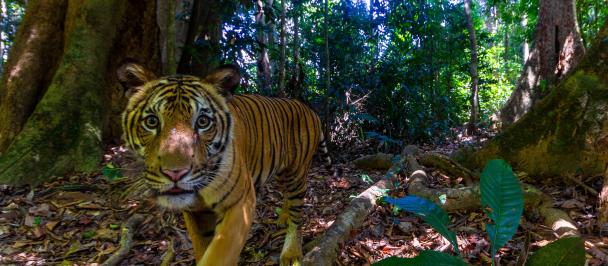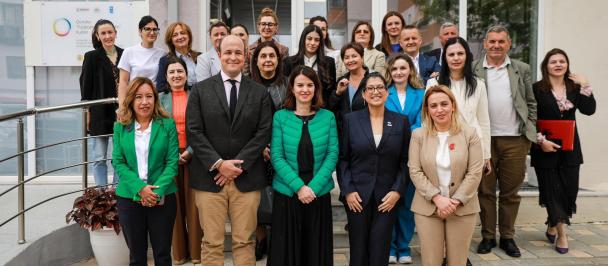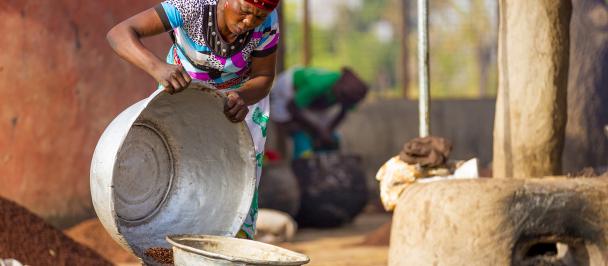The Norwegian Launch of the Human Development Report 2021/2022
September 15, 2022

We are living in uncertain times. The COVID-19 pandemic, now in its third year, continues to spin off new variants. The war in Ukraine is reverberating throughout the world, causing immense human suffering, including a cost-of-living crisis, while climate and ecological disasters threaten the world daily.
So where do we go from here for a more hopeful future? How do we find new paths? And what is standing in the way of us moving there? The Human Development Report 2021/2022, Uncertain Times, Unsettled Lives: Shaping our Future in a Transforming World, seeks to address these questions.
We live in a world of worry and uncertainty but there is also hope. A chance to rethink our future, renew and adapt our institutions, and create new stories about who we are and what we value. Feelings of insecurity are on the rise nearly everywhere—a trend at least a decade in the making. That trend began well before the Covid-19 pandemic, which for first the first time ever, sent global human development in reverse—for two years straight.
The central message of this year’s Report is straightforward: to turn new uncertainties from a threat to an opportunity, we must double down on human development to unleash our creative and cooperative capacities.
To do so we must:
- Expand human agency and freedoms, in addition to wellbeing achievements.
- Widen the vista on human behaviour, going beyond models of rational self-interest to include emotions, cognitive biases and the critical roles of culture.
- Implement smart, practical policies that focus on the three I’s:
- Investment: to form the capabilities people will need in the future and enable socioeconomic and planetary conditions for human flourishing
- Insurance: to protect people from the unavoidable contingencies of uncertain times and safeguard people’s capabilities, including their fundamental freedoms (human security).
- Innovation: to generate capabilities that might not exist today.
The path we choose is up to us.
These three relatively new but significantly more intense layers of uncertainty impact us as individuals in all countries, but it also has far-reaching implications for societal planning and governance, Arvinn stressed in his presentation of the report.
UNDP Oslo Governance Centre collaborated with the UNDP Nordic Representation Office, Norwegian Ministry of Foreign Affairs, and the Norwegian Agency for Development Cooperation (NORAD) for the Norwegian Launch Event for #HDR2022.
After the findings of the report were presented, the current Norwegian Minister of International Development and three former ministers of International Development participated in an insightful panel discussion, moderated by Arvinn Gadgil.
The unique panel examined the report's alarming discoveries and discussed how it can be used as a tool to navigate in these uncertain times. One of the main aspects that were discussed, was Norway’s role and potential in international development efforts. Norway must continue to work in alignment with the Sustainable Development Goals in order to reverse the negative development trend we are currently witnessing.
All the speakers expressed grave concern regarding the global trend of increasing inequality, mistrust, and polarization. However, the panel maintained an optimistic outlook and focused on the path ahead, with a significant emphasis on trust, strong partnerships, innovation, and investment in long-term development.
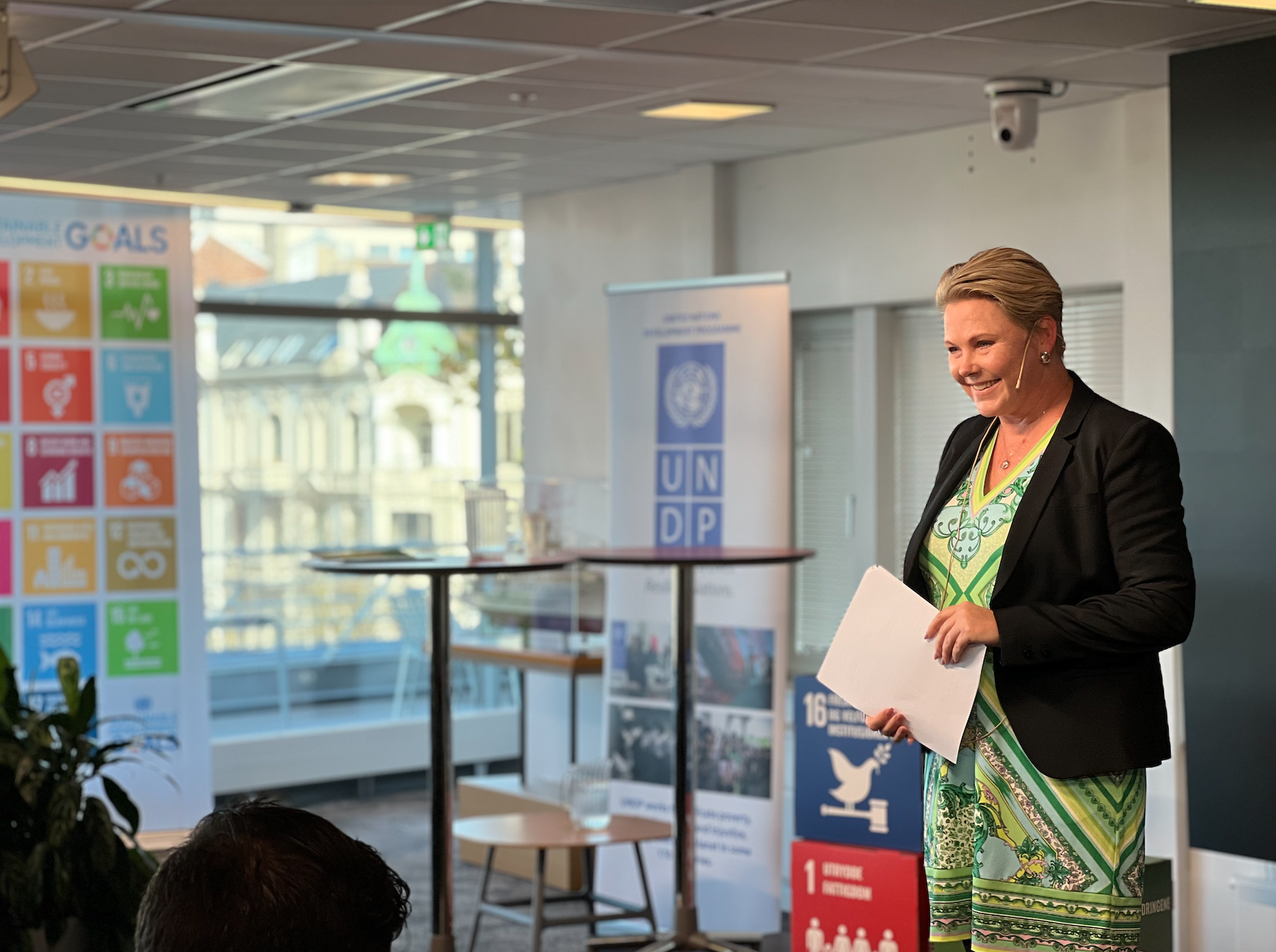
We all know the road ahead to 2030 will be a difficult task, and it is easy to get discouraged when we are constantly confronted with new crises and uncertainties, but giving up or refusing to try is not an option. We must enhance our efforts, become more efficient, and build stronger partnerships, said the Norwegian Minister of International Development, Anne Beathe Tvinnereim in her opening remarks.
The discussion centered around the former ministers' experiences and reflections on what they could or would have done differently to mitigate the unprecedented circumstances we encounter today. Among these insights was a focus on supporting - rather than imposing - democratic transitions and procedures in other countries.
Another aspect that was addressed was global economic inequality and how some crises benefit wealthy nations while negatively affecting their willingness to invest in underdeveloped countries.
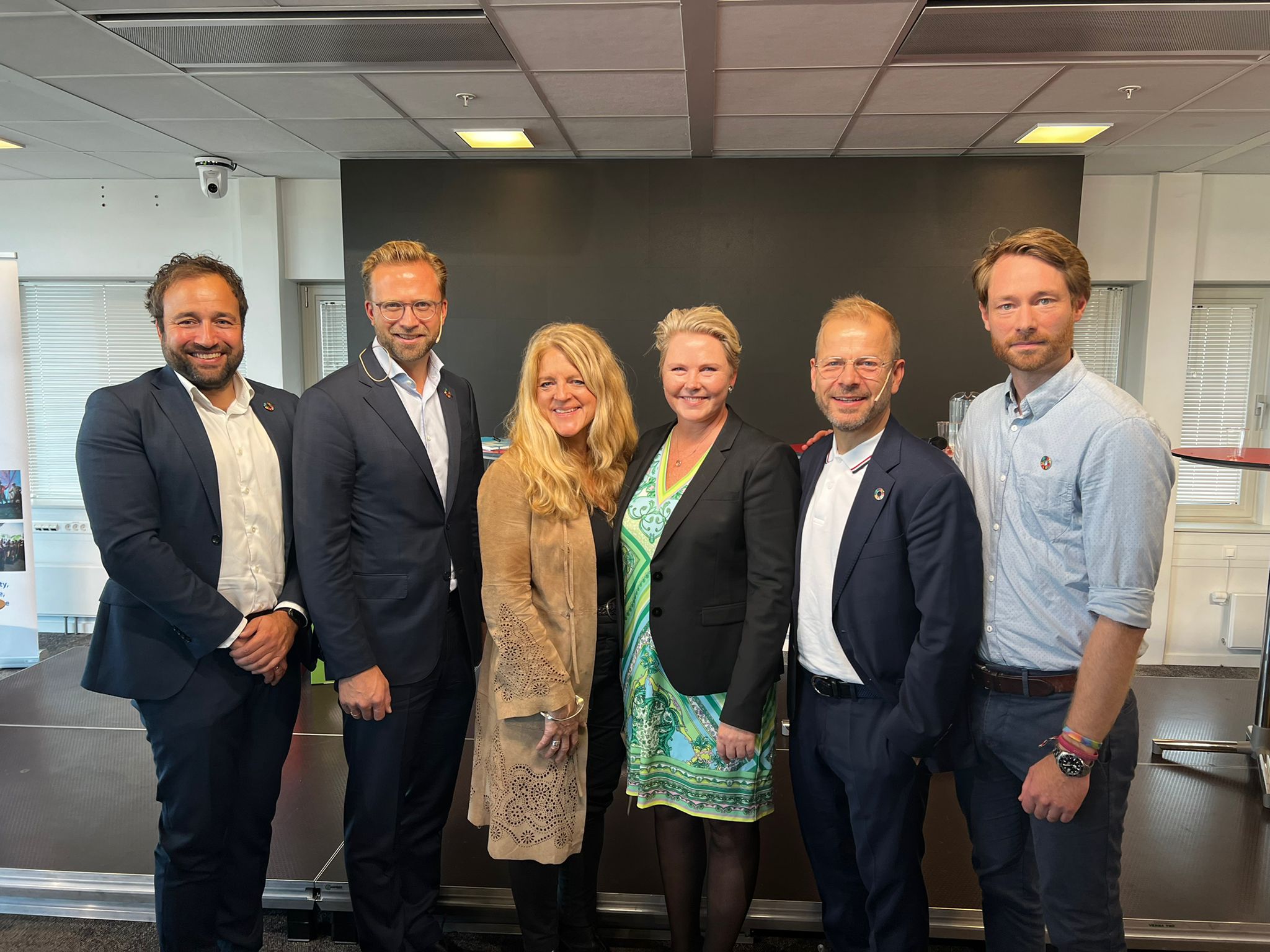
Arvinn Gadgil, Nikolai Astrup, Hilde Frafjord Johnson, Anne Beathe Tvinnereim, Heikki Holmås, and Håvard Mokleiv Nygård
The Norwegian launch of the report was a good starting point for a broader and deeper discussion facilitated by UNDP Oslo Governance Centre.

 Locations
Locations